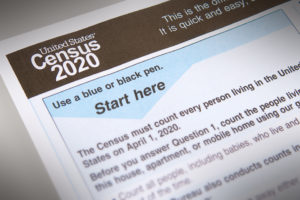
The U.S. Supreme Court hears its highest profile case of the term Tuesday — a battle over the Trump administration’s plan to add a citizenship question to the 2020 census form that goes to every U.S. household.
A total of 18 states, several of the nation’s largest cities, and immigrant rights groups say the question would make immigrants reluctant to respond to census takers, resulting in an undercount of the population. They won two battles in the lower courts, prompting the government’s appeal to the high court.
The Constitution requires a census every 10 years, and the results determine how many members each state gets in the U.S. House of Representatives. The data is also used to calculate a local government’s share of funds under many federal programs.
Commerce Secretary Wilbur Ross said the question was added at his direction after he received a letter from the Department of Justice which said the data was needed to properly enforce civil rights laws. But Federal District Court Judge Jesse Furman of New York said the evidence at a trial on the issue revealed that Ross’ claim was nothing but a pretext.
Furman concluded that Ross actually prodded the Justice Department to send the letter, which demonstrated that he “made the decision to add a citizenship question well before he received DOJ’s request.” The judge also found that including the question would violate a federal law requiring the government to get as accurate a count as possible, because it would “materially reduce response rates among immigrant and Latino households.”
Led by New York, the states opposing the question also said Ross’ directive sidestepped the Census Bureau’s long-standing procedures for testing changes to the questionnaire in order to evaluate whether they would lead to an undercount. Because the citizenship question would depress minority responses, the challengers said, including it on the form would actually produce a less accurate count than leaving it off and using Social Security and IRS data to supplement the information gathered from the census form.

Recent Comments